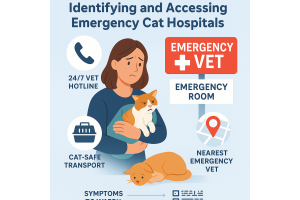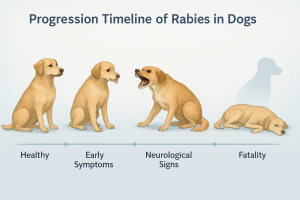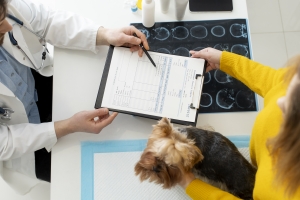Online Veterinary Consultations: Pros and Cons

With the rise of telemedicine, online veterinary consultations have become more popular. While they offer convenience and accessibility, there are both advantages and limitations to consider. Here’s a look at the pros and cons of online veterinary consultations for pets.
1. The Pros of Online Veterinary Consultations
- Convenience: One of the biggest benefits of online consultations is the convenience they offer. You can consult with a veterinarian from the comfort of your own home, saving time and avoiding the stress of travel, especially for pets that are anxious about visiting a veterinary hospital.
- Access to Specialists: Online consultations give you access to veterinary specialists who may not be available locally. For complex health issues or specialized care, telemedicine can connect you with experts who can provide guidance.
- Cost-Effective: In many cases, online consultations can be more affordable than in-person visits. This can be especially helpful for minor health concerns or for pet parents on a budget.
- Continuity of Care: For pets with chronic conditions or ongoing health concerns, online consultations can provide a quick and easy way to check in with the veterinarian without the need for in-person visits.
2. The Cons of Online Veterinary Consultations
- Limited Physical Examination: One of the main drawbacks of online consultations is that the veterinarian cannot physically examine your pet. A full physical exam, which is crucial for diagnosing many health issues, is not possible during a virtual consultation. This can limit the veterinarian’s ability to provide a comprehensive diagnosis.
- Not Suitable for Emergencies: Online consultations are not appropriate for emergencies. If your pet is in acute distress or has a life-threatening condition, an in-person visit to an emergency veterinary hospital is required. Virtual consultations are best suited for non-urgent issues or follow-up care.
- Technology Limitations: Online consultations require a stable internet connection and sometimes specific software or apps to facilitate communication. Not all pet parents have access to the technology required for these consultations, which can be a barrier for some.
- Limited Diagnostic Tools: While some online consultations allow you to share photos or videos of your pet, the veterinarian cannot perform diagnostic tests like blood work, X-rays, or ultrasounds. These are essential for diagnosing certain conditions, which means in-person visits may still be necessary for a complete diagnosis.
3. When to Consider an Online Veterinary Consultation
Online consultations can be a useful tool in several scenarios:
- Follow-Up Care: If your pet has already been seen by a veterinarian and requires follow-up care or a second opinion, an online consultation can be a quick and easy way to check in.
- Minor Health Concerns: If your pet has a minor issue, such as a small wound, mild digestive upset, or a behavioral question, an online consultation may be sufficient to provide guidance and advice.
- Behavioural Consultations: For concerns like behavioural issues, online consultations with a veterinary behaviorist can be very effective in developing strategies for training or addressing problem behaviours.
4. When In-Person Visits Are Necessary
While online consultations can be useful for many pet health issues, there are situations where an in-person visit is necessary:
- Emergencies: If your pet is experiencing an emergency, such as breathing difficulty, severe injury, or poisoning, you should go directly to an emergency veterinary hospital.
- Severe Illness or Chronic Conditions: If your pet is showing signs of severe illness or has a chronic condition that requires ongoing treatment and monitoring, an in-person visit is necessary for proper care and diagnosis.
- Physical Examinations: If your pet needs a physical examination, diagnostic tests, or vaccinations, these services can only be provided in person.






